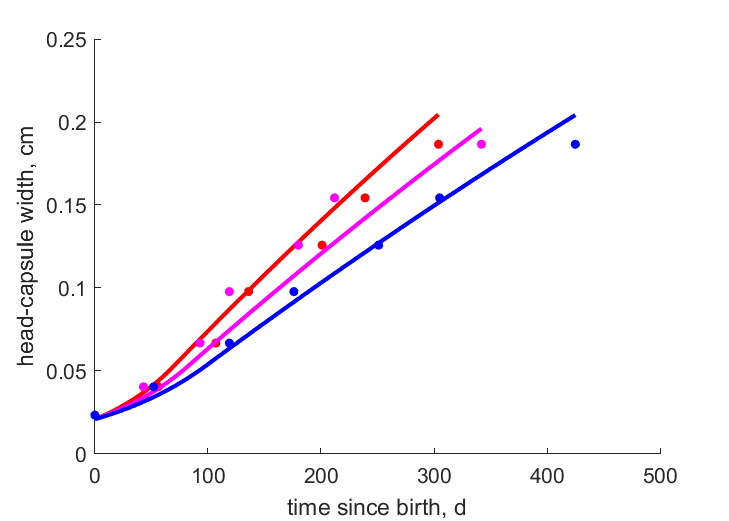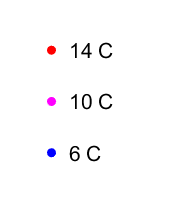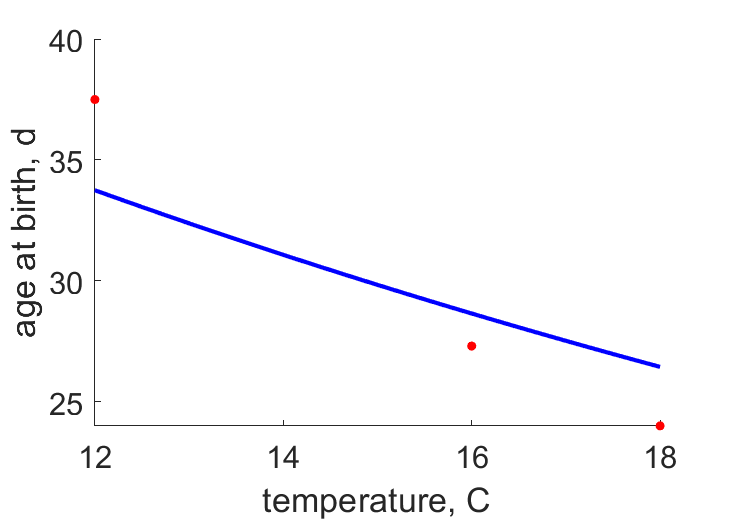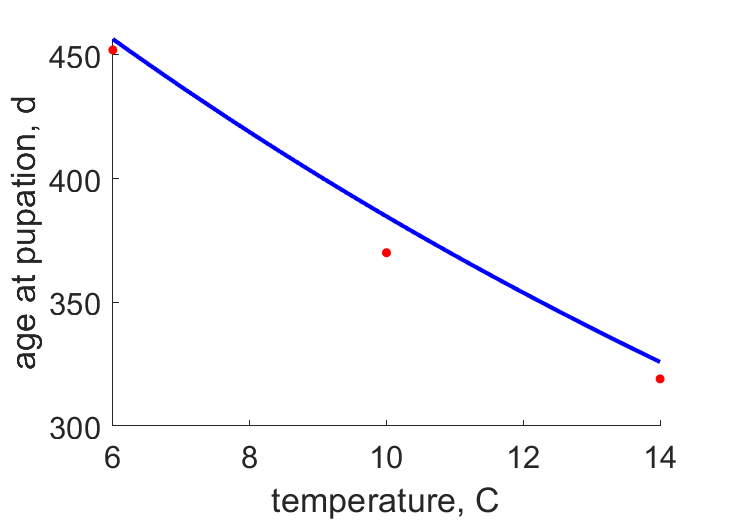Predictions & Data for this entry
| Model: hax | climate: B, C, D | migrate: | phylum: |
| COMPLETE = 2.0 | ecozone: THp | food: bjH | class: |
| MRE = 0.087 | habitat: 0iFm | gender: D | order: |
| SMSE = 0.045 | embryo: Fs | reprod: Os | family: |
Zero-variate data
| Data | Observed | Predicted | (RE) | Unit | Description | Reference |
|---|---|---|---|---|---|---|
| ab | 36 | 33.75 | (0.06261) | d | age at birth | Wagn1990 |
| tj | 319 | 325.8 | (0.02136) | d | time since birth at pupation | Wagn1990 |
| tTj_10 | 370 | 384.7 | (0.03973) | d | time since birth at pupation | Wagn1990 |
| tTj_6 | 452 | 456.4 | (0.009716) | d | time since birth at pupation | Wagn1990 |
| te | 40 | 15.74 | (0.6066) | d | time since pupation at emergence | Wagn1990 |
| am | 21 | 21.04 | (0.001945) | d | life span as imago | wiki |
| Lb | 0.0234 | 0.02088 | (0.1075) | cm | head-capsule width at birth | Wagn1990 |
| Lj | 0.2 | 0.2173 | (0.08675) | cm | maximum head-capsule width of 7th instar larvae before pupation | WallWall1990 |
| Ljl | 1.2 | 1.199 | (0.0004837) | cm | maximum larval length of 7th instar larvae before pupation | OttoSven1980 |
| V0 | 0.02245 | 0.02273 | (0.0123) | cm^3 | initial egg volume | Wagn1990 |
| Ni | 351 | 330.4 | (0.05871) | # | total number of eggs | Elli1969 |
Uni- and bivariate data
| Data | Figure | Independent variable | Dependent variable | (RE) | Reference |
|---|---|---|---|---|---|
| tL14 |   | time since birth | head-capsule width | (0.09058) | Wagn1990 |
| tL10 |   | time since birth | head-capsule width | (0.1332) | Wagn1990 |
| tL6 |   | time since birth | head-capsule width | (0.05698) | Wagn1990 |
| Tab |  | temperature | age at birth | (0.0849) | Wagn1990 |
| Taj |  | temperature | age at pupation | (0.0227) | Wagn1990 |
Pseudo-data at Tref = 20°C
| Data | Generalised animal | Sericostoma personatum | Unit | Description |
|---|---|---|---|---|
| v | 0.02 | 0.003214 | cm/d | energy conductance |
| p_M | 18 | 19.37 | J/d.cm^3 | vol-spec som maint |
| k_J | 0.002 | 0.002 | 1/d | maturity maint rate coefficient |
| k | 0.3 | 0.4586 | - | maintenance ratio |
| kap | 0.8 | 0.6286 | - | allocation fraction to soma |
| kap_G | 0.8 | 0.8008 | - | growth efficiency |
| kap_R | 0.95 | 0.95 | - | reproduction efficiency |
Discussion
- only head-capsule width of the different instars is used here because the lack of length data
- combined with duration of the different instars, the head-capsule width were used for length over time-plots
- only data with 8/16 light/dark rythm were used here
Acknowledgment
- This entry was financially supported by the CEFIC Long-range Research Initiative (project number ECO28)
Bibliography